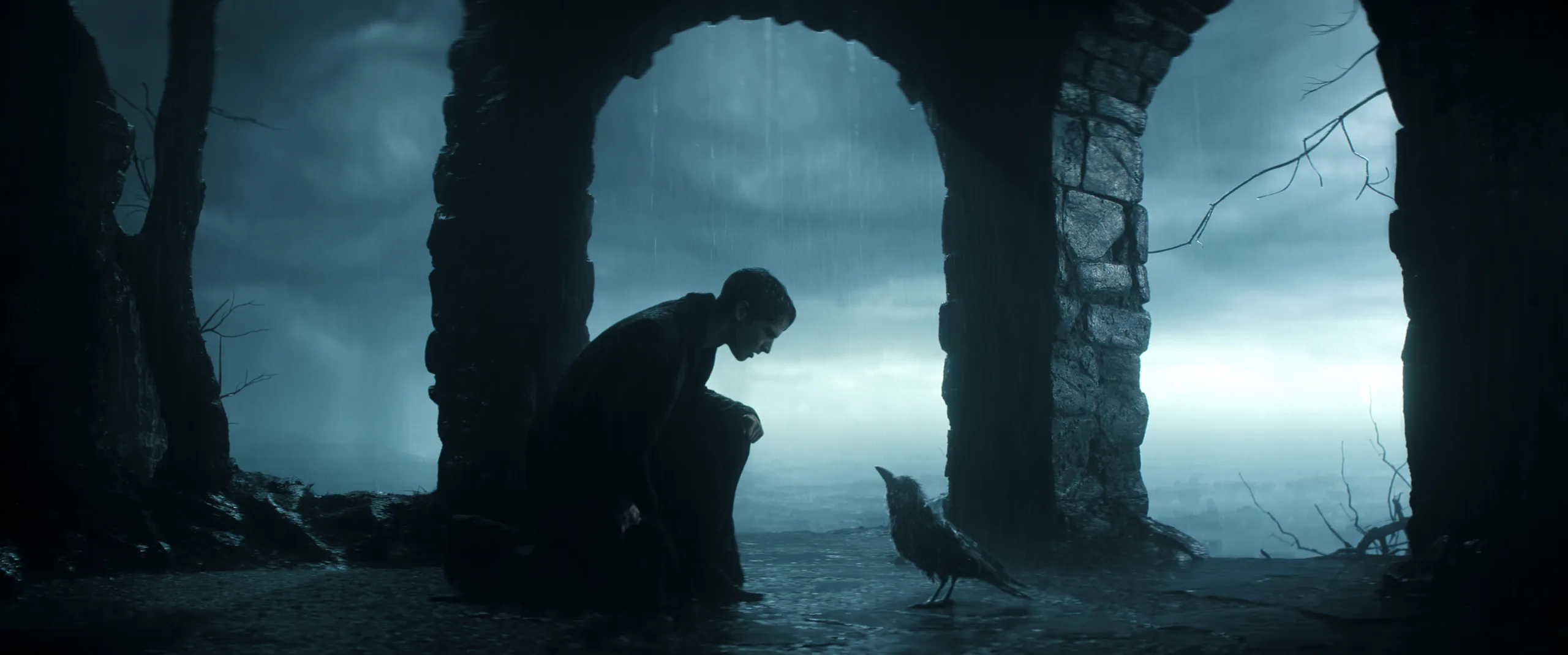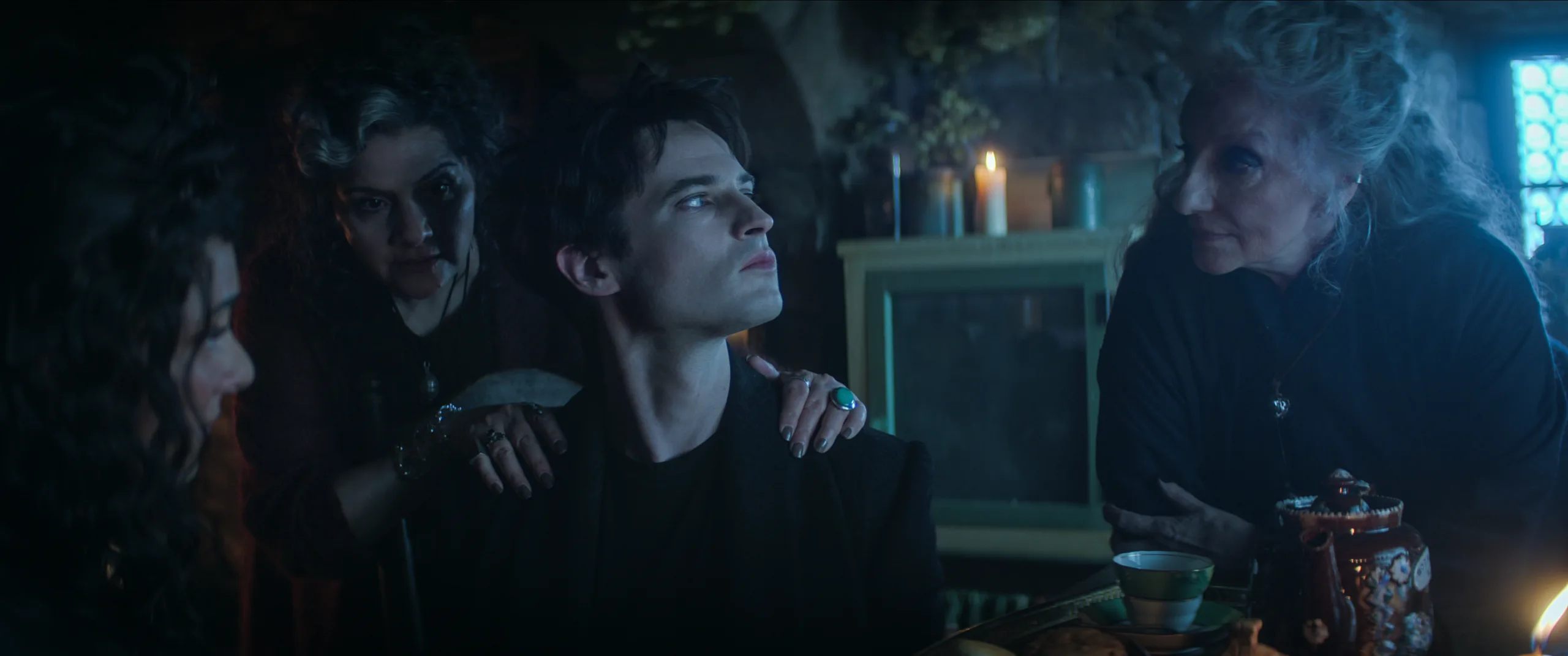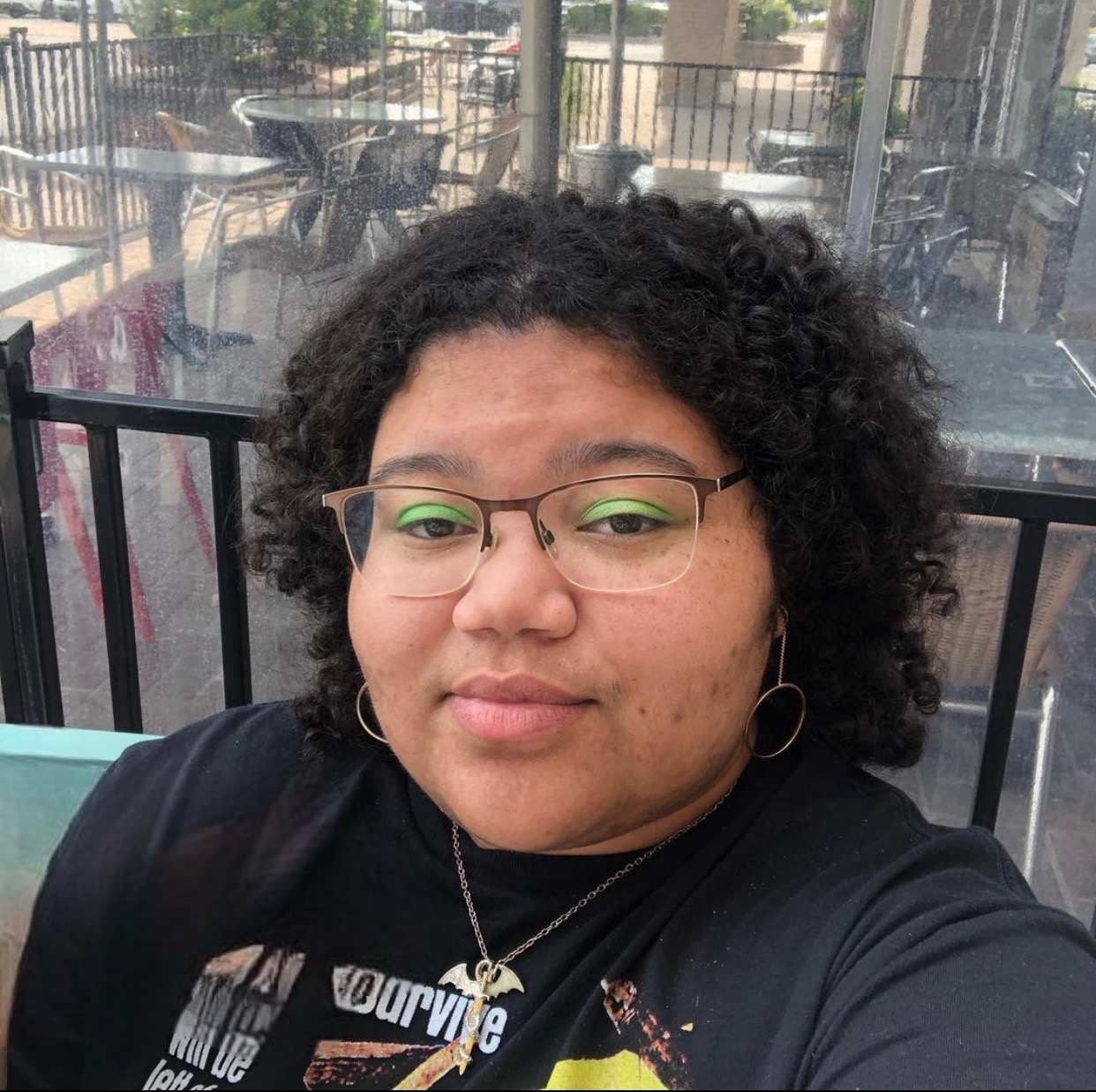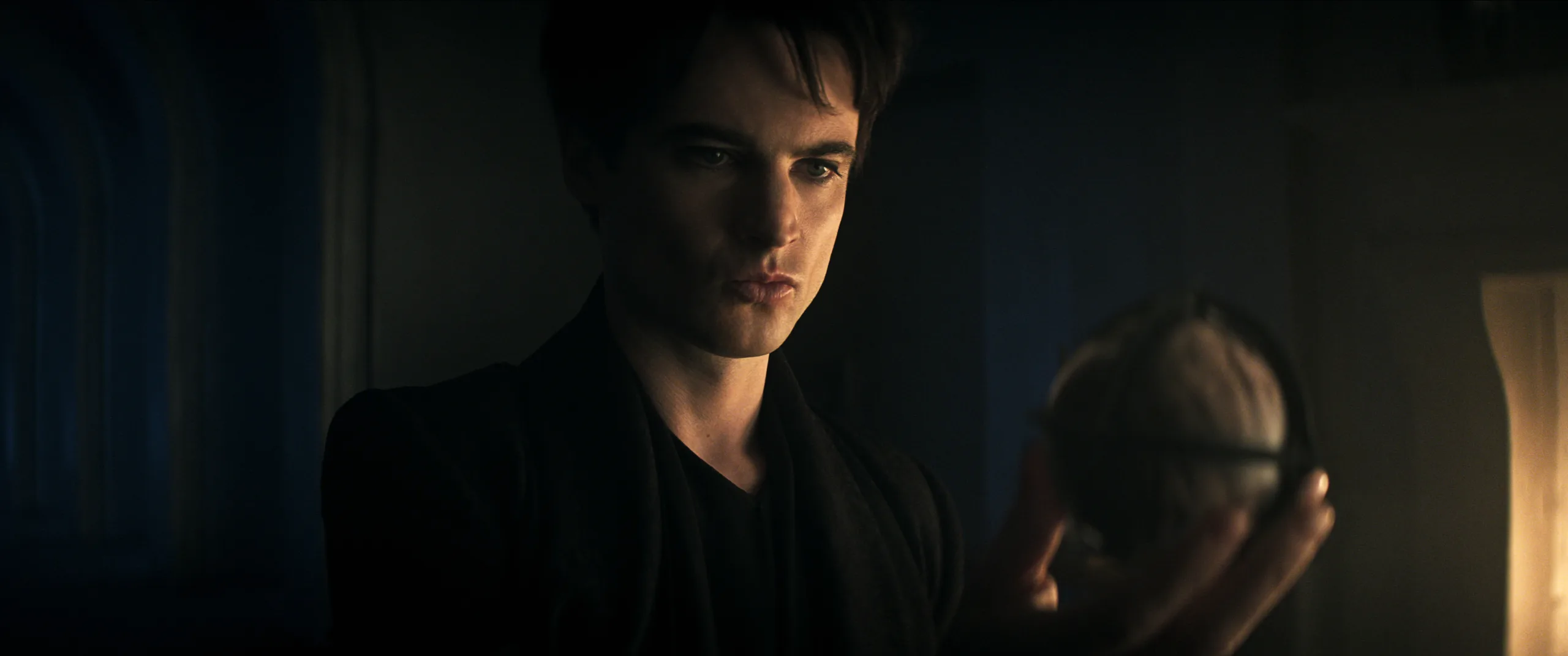In the finale of Volume 1 of the second and last season of “The Sandman,” Dream (Tom Sturridge) made the tragic decision to grant his son Orpheus (Ruairi O’Connor) the ultimate peace of death, spilling family blood for the first time in centuries. Although it was a gift passed down from father to son, this act will bring forth the wrath of foes not yet known, who threaten to lay waste to Dream and the realm of The Dreaming. The second half of this season begins with a televised announcement from the Pope, declaring a historic shift: Women are now welcome in the priesthood. Dream appears detached, before he transports to the Vatican, where it is revealed that this is the doing of the tricksters Puck (Jack Gleeson) and Loki (Freddie Fox).
The two are the centerpiece in this new volume, becoming tethered to Dream’s overarching story when they kidnap an essential figure to his narrative, who Dream believes is tied to the survival of the world as these characters know it. Their interactions mimic the clever dance of hyenas; each scene charged with a blend of humor and tension. As Loki reflects on the relationship between him and Puck, he candidly states, “We know we can’t trust one another.” This encapsulates the essence of their tumultuous bond, which emerges as one of the most captivating queer relationships on television this year. Gleeson and Fox have a chemistry that is so palpable it often feels as if we’re looking in on a real couple, watching as they scheme together, betray each other, and delight in each other’s presence.

While Volume 1 of “The Sandman” reached remarkable heights, Volume 2 elevates the series tenfold, solidifying it as one of the best fantasy adaptations of the decade. It pulls the original material out from the graphic novels, weaving itself through an interpretation that rivals even that of the source material. As Dream tries to evade those who want to harm him, a looming sense of inevitability unfolds, one that even Dream can’t shake from infiltrating his home, and each of his relationships. As these threats encroach on the life he holds dear, Dream’s affinity for misery grows stronger. He walks around the corridors of his home like a restless spirit, burdened by a fate that may have already long been written in stone.
“Events will fall as they must,” Destiny (Adrian Lester) whispers to an empty garden, propelling the series into a mediation on grief and inevitability. Beneath the air of despair that this season holds however, is the unwavering examination of what it means to forgive oneself, which rises through the bleakness of this volume like a beacon of hope. Dream’s storyline is the most captivating it’s ever been, with the protagonist weighing his options after igniting the fury of The Kindly Ones. If he’s to stand up and fight them, he risks the sanctity of his home, his family and the ones he holds dear. Yet, there lurks a deeper conflict within Dream, one that he doesn’t seem to want to admit to himself, yet everyone around him picks up on.
In his quest to retrieve what Puck and Loki have stolen from him, Dream enlists the help of Johanna Constantine (Jenna Coleman). As the two hunt for the elusive couple, Johanna warns Dream that their mission could be described as committing suicide. Her words hang heavily in the air, growing thicker the longer Dream stays quiet. With his silence, Dream communicates to Johanna—and the audience—that he knows this already, and has surrendered to the suffocating weight of what he believes to be his fate. With each step of his journey, the reminders of his past mistakes consume him, stirring within him a deep-seated uncertainty of what kind of world he would leave in his wake if he were no longer to be a part of it.

While the final volume of “The Sandman” is perhaps heavier than it’s ever been, it still manages to be so thrilling that it’s hard to remember at times that we’re watching the life of our protagonist unfold to the point of no return. As Dream embarks on his relentless pursuit of Puck and Loki, the series unfolds like a typical detective series that just so happens to feature gods. This interplay between the supernatural and the mundane is where the series truly excels, illustrating how these powerful beings are compelled to not only adapt to the whims and peculiarities of human existence, but also how they’re all eventually reeled in by the allure of this mundanity.
As the series comes to a close, the show brings back some familiar faces, as well as a new character (who can’t be identified due to spoilers), whose actor gives one of the series’ most startling and magnetic performances. Once the final episode comes around, it’s impossible not to think of what could have been if this adaptation were allowed to expand beyond Dream, The Endless and the world of The Dreaming. “The Sandman” has created a diverse and flourishing on-screen world that rivals other shows in the same genre, and even at times transcends its own source material. In its final moments, the series stands out as a perfect sendoff to this captivating world, and the characters at the center of its beating heart.
Whole season screened for review.












